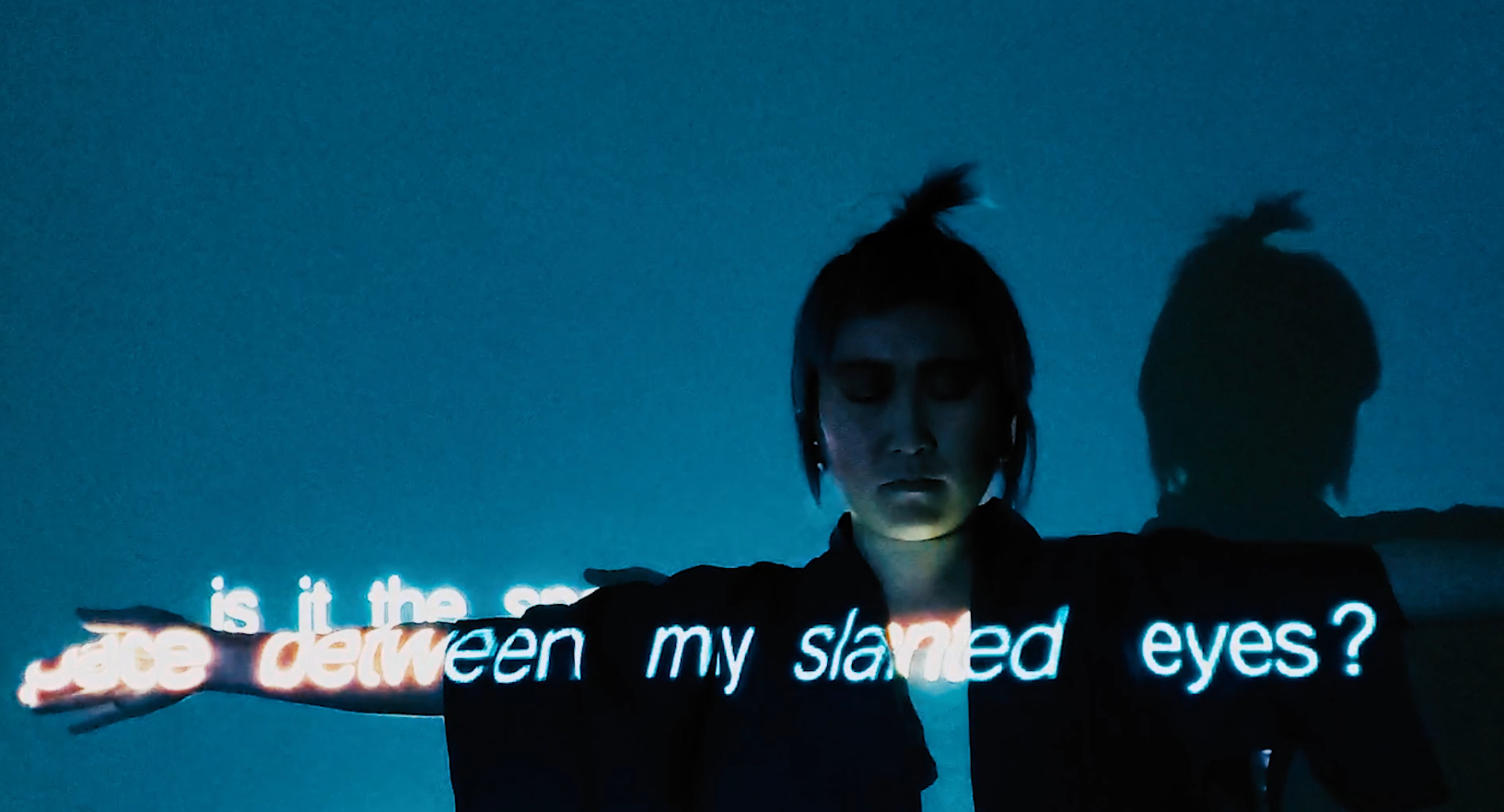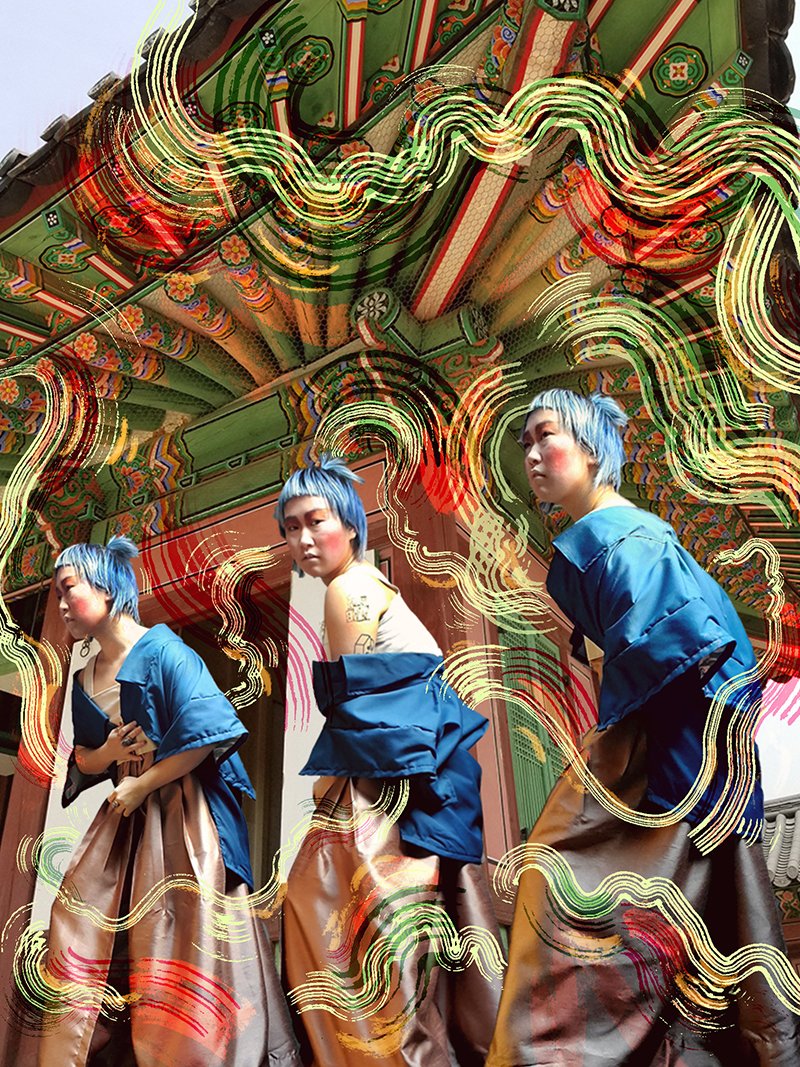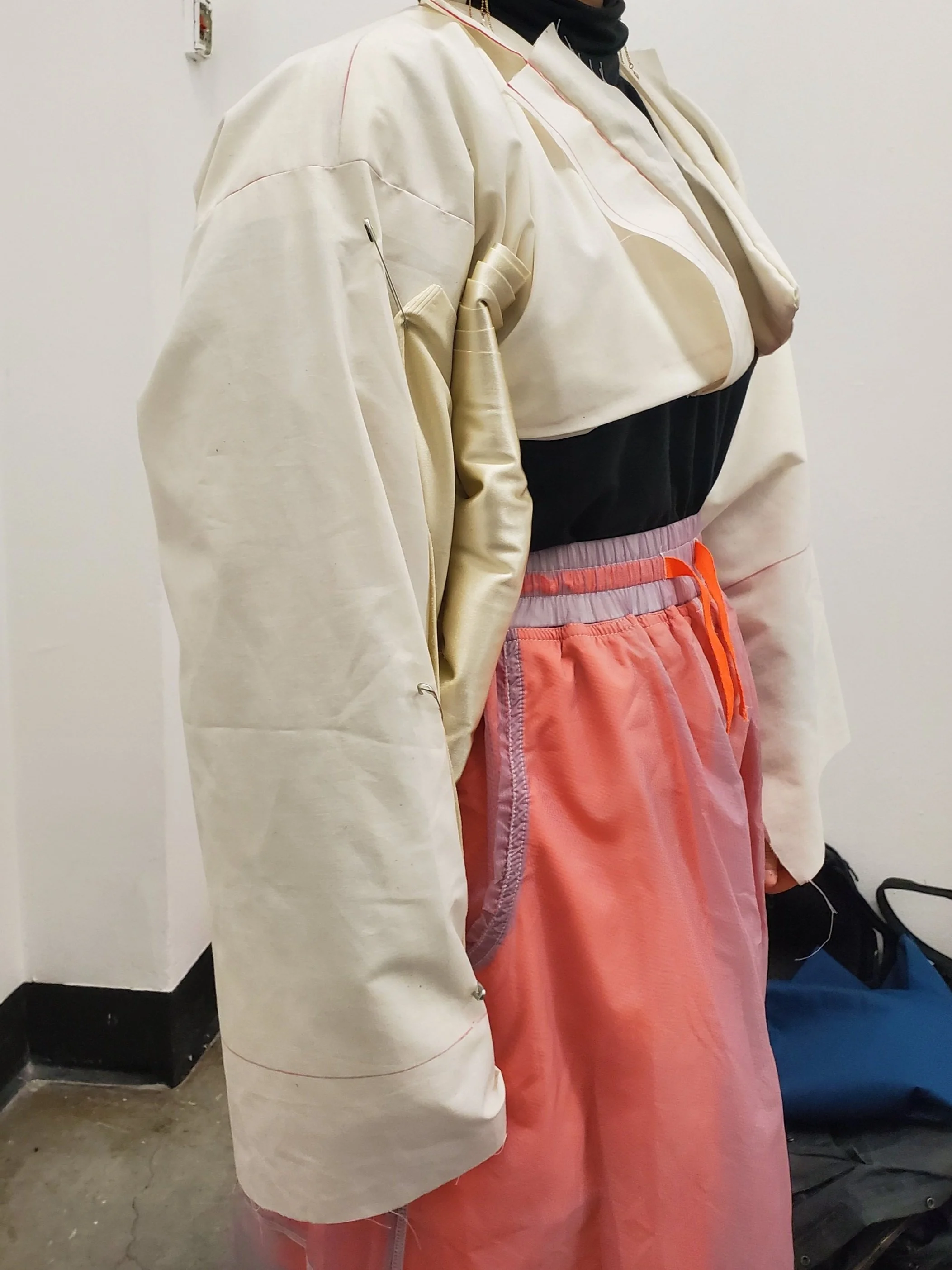ONLINE_OFFLINE III
Heterotopias= A term coined by French philosopher,
Michel Foucault to describe worlds within worlds,
mirroring and yet upsetting what is outside.
ONLINE_OFFLINE III is a two-fold multidisciplinary visual performance piece paying homage to Korean traditional costume, projection mapping with contemporary dance,
as a way of combining the past, present and future of transnational identities.
Using my mother's sewing machine, I have created my own 한복/hanbok (Korean traditional costume) and project my animations onto the garment, revealing the
complexity of my hyphenated identity as a second-generation Korean-Canadian immigrant. The second part of the piece projects the digital animation onto public space.
By doing so, the construction of my 한복 weaves into the animations, transforming into a performance. This ongoing performance will further help me to understand my Korean identity through my mother's eyes, and my body.
ONLINE_OFFLINE III exhibited at BigArtTO, a city-wide public art celebration featuring free temporary public artworks projected onto local buildings and landmarks in 2020.
The term ‘diaspora’ refers to
people who cross boundaries
and who settle in locations
different to those of their origins.
This definition suggests diasporic people have a point of origin.
Projection Mapping Studio Space
Projection Mapping Experiments on 한복[hanbok] prototype
Close up shot of 한복/hanbok prototype
Sketch of 한복/hanbok
The 3D animation acts as a digital love letter to my parents, visually capturing the miscommunication that occurs within South Korean parents and their children. As a second-generation immigrant, I use speculative narrative animation as a design tool to further my understanding of my Korean identity and how to find the right words to describe the intergenerational gap between me and my parents.
3D model of my speculative world
Screenshot of animation
Does home constitute a geographical location?
I argue the concept of diaspora offers a critique of discourses of fixed origins, while taking account of a homing desire which is not the same thing as desire for a “homeland.” This distinction is important, not least because not all diaspora sustain an ideology of “return” (Brah 180).
Korean shopkeepers with wares















